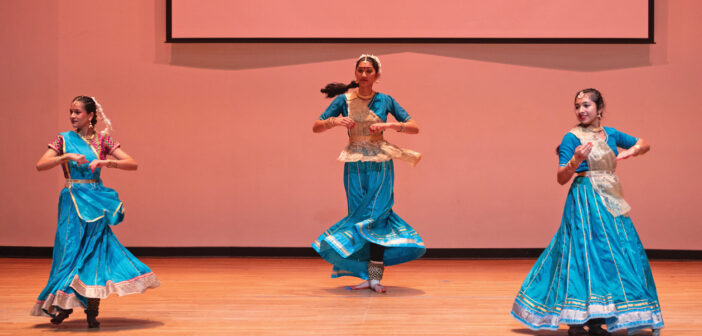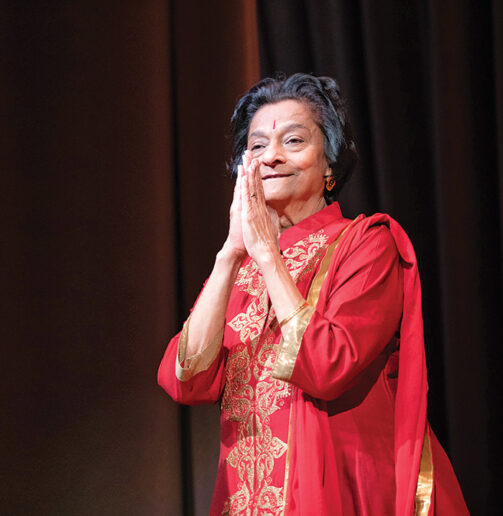
Photos provided by Mike Naddeo Photography
On October 14, Ashoka Rao, Founder and Artistic Director of Nrityanjali, a school of classical Indian dance, was a recipient of the prestigious Michigan Heritage Award. She was recognized for her dedication and lifelong commitment to preserving and passing on the traditional Kathak Dance of India.
“Ashoka Rao is a maverick. She rose to the challenge of keeping the traditions of the past relevant today. And, she continues to do it with every ounce of her being. From choreographing unique pieces, forging cross-cultural relationships with local tap dancing studios, spending hours blocking out lighting for showcases and inspiring her endless number of students—she was the first to bring Kathak into Michigan and continues to be one of its biggest champions. She truly deserves the Michigan Heritage Award.”
Neha Thawani, Nrityanjali Student
Held at the Flint Institute of Music, the ceremony included a short performance of Kathak-style dance by Rao’s students, an award presentation by the Michigan Traditional Arts Program, as well as special proclamations bestowed by Governor Gretchen Whitmer and Mayor Sheldon Neeley. A reception followed the program.
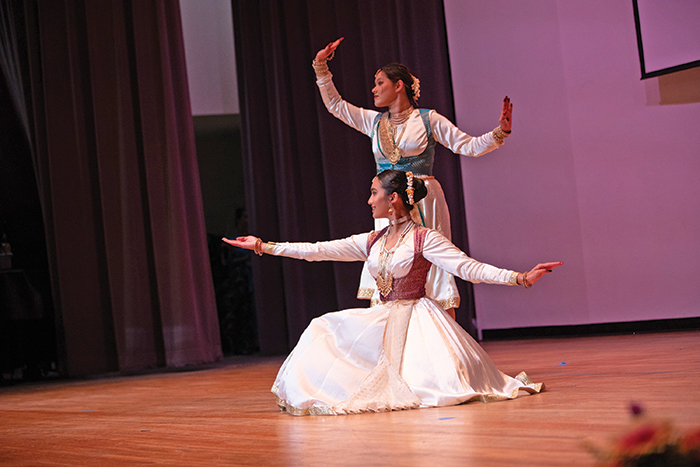
Rao established Nrityanjali in 1993 with the commitment and goal of preserving, propagating and passing on Performing Arts of India, with a special commitment to Kathak Dance. Nrityanjali was the first school of Kathak in Michigan.
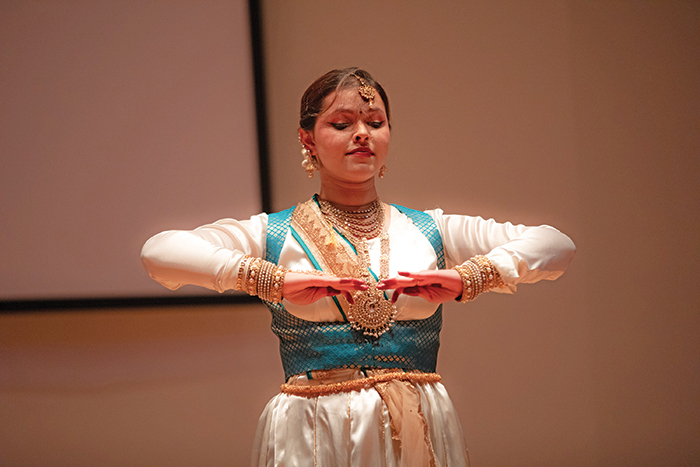
The state’s highest distinction, the Michigan Heritage Award honors individuals who continue their family, community or cultural traditions with excellence and devotion. Established in 1985, the program highlights Michigan’s exceptional tradition-bearers and supporters of traditional culture who were not previously recognized for their contributions to our state’s heritage. Annual awards are presented to Michiganders who practice a wide range of cultural traditions, as well as those who work to support or document them.
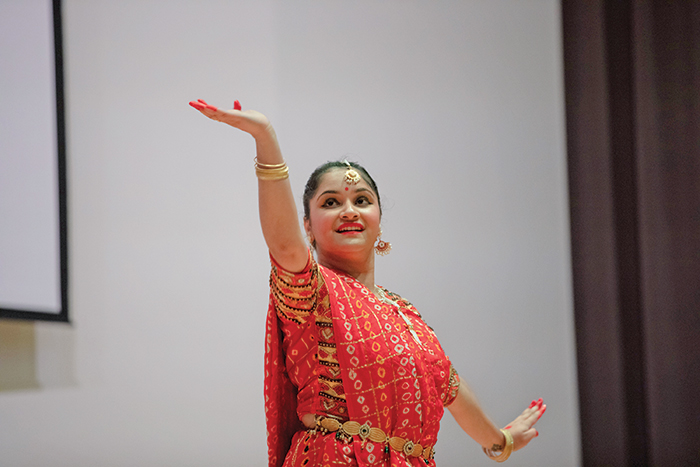
A Swartz Creek resident, Rao was born in India and came to the U.S. in 1975. She started teaching in 1989, determined to preserve and pass along her knowledge of the beautiful, classical dance form of North India. In addition to her teaching, Rao is the Development Director at Gloria Coles Flint Public Library and president of the Greater Flint Sunrise Rotary Club.

Flint Mayor Sheldon Neeley proclaimed October 14, 2023 Ashoka Rao Day and was present at the ceremony to represent the city.
“It takes several years to learn Kathak,” the teacher shares. “You have to have commitment. I am still learning. I keep learning and love to share my talent and experience with my students.”
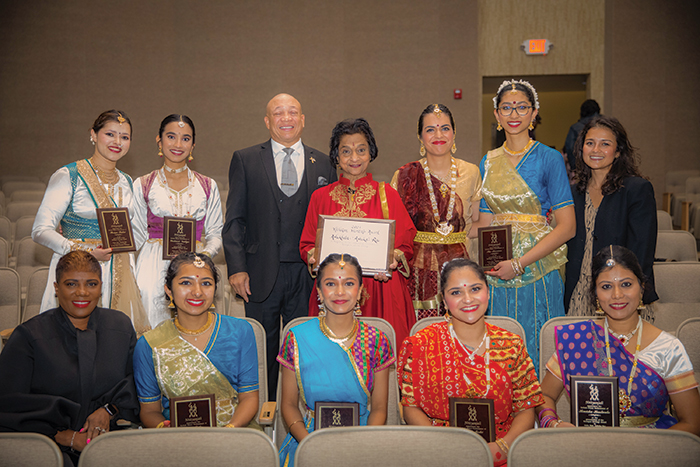
Ashoka Rao recognized her students who performed at the ceremony for her Michigan Heritage Award.
What is Kathak? Traditionally attributed to ancient Northern India, it is one of ten major forms of Indian classical dance, which Rao describes as a time-honored tradition that evolved during the Bhakti (Devotional) movement. The Vedic Sanskrit word “katha” means “story” and a storyteller is known as “kathaka.” Through dance and music, the wandering kathakas performed in courts of Northern Indian kingdoms. They enacted stories from the great epics, the life of Lord Krishna and moral tales of Gods and Goddesses which include characters from Roman and Mahabharata. With intricate footwork, the dancer articulates precise rhythms by controlling about 100 metallic bells (ghungroos) worn on each ankle. “The purpose is to utilize music, dance and mime to narrate God,” Rao explains. “Through dance, they enact stories of God, stories of victory and good over evil.”
I have only done what I love and have been honored to pass this on to my students.
Ashoka Rao
The 42 Nrityanjali student dancers not only have graduate degrees, but are also capable of teaching Kathak if they choose to do so. “My goal is to preserve this art and pass it on. I have passed on what was handed down to me by my guru (teacher),” she notes.
Rao is grateful for the donors, parents and students who have committed their time and resources to preserving the Kathak heritage. She is also grateful for the Michigan audiences who have embraced this beautiful form of classical dance.
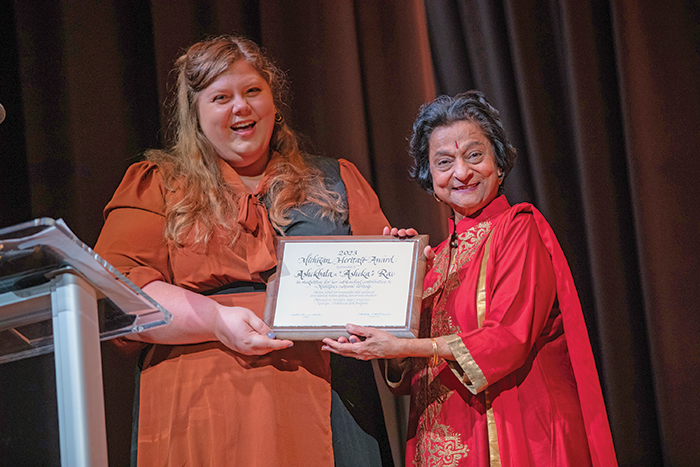
“It is a blessing to be recognized,” Rao says of the Michigan Heritage Award. “I have only done what I love and have been honored to pass this on to my students.”

